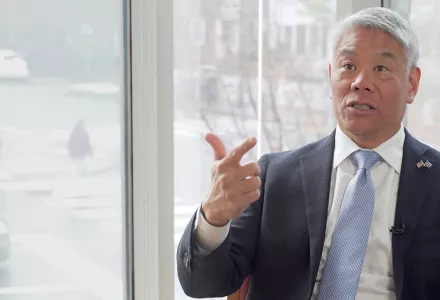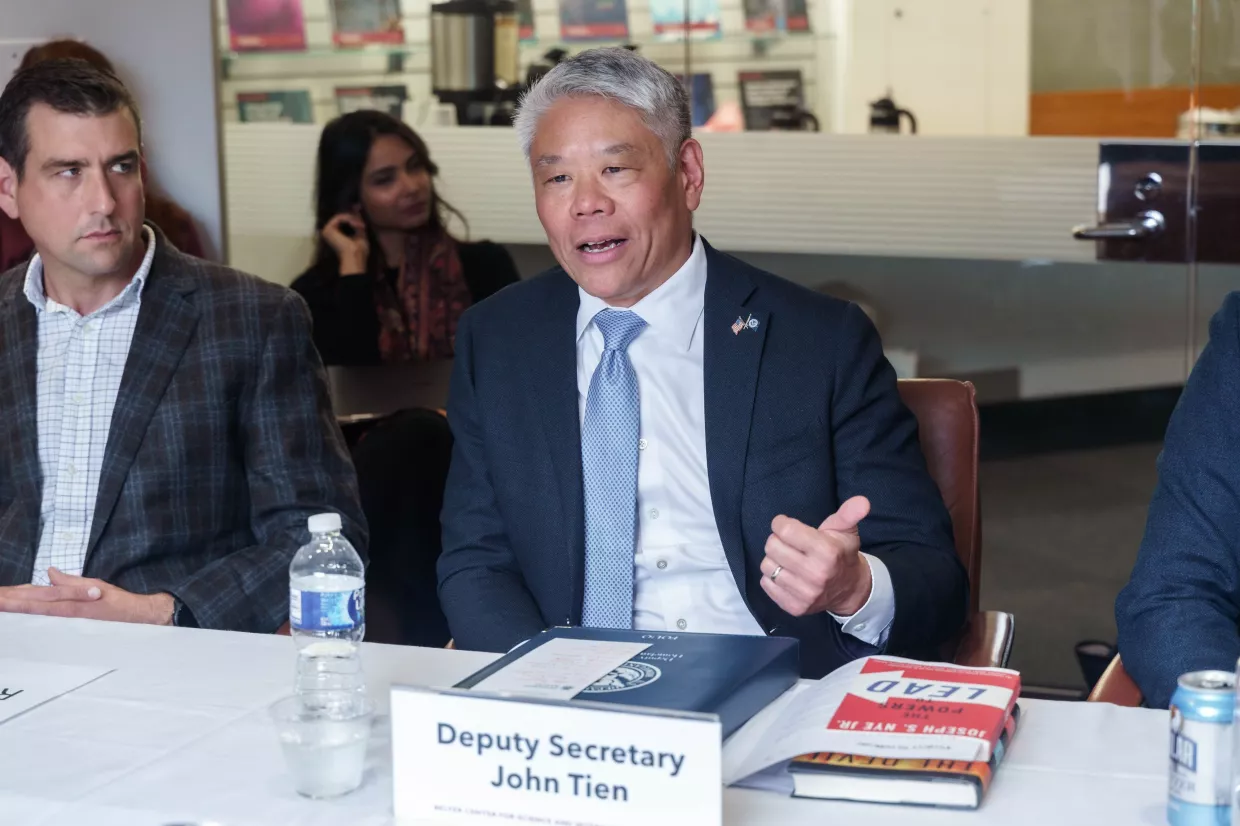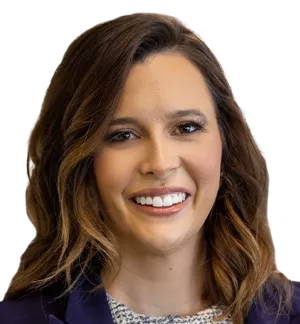
On the day of the Boston Marathon 2023, ten years after the 2013 bombing, John Tien, the Deputy Secretary of the Department of Homeland Security, visited the Belfer Center and spoke with Shannon Felton Spence about leadership. Deputy Secretary Tien was a National Security Fellow at the Belfer Center from 2007 to 2008.
---
The following is a transcript of a conversation on April 17, 2023.
Shannon Felton Spence:
You are the first Asian American to ever serve in the West Point top-ranked cadet position and to be confirmed as the Deputy Secretary of Homeland Security. What do you think were the key attributions or factors that contributed to your success?
John Tien:
One is an appreciation for the opportunity as the son of immigrants. To find the opportunity in a great institution like the United States Army, largely a meritocracy, to say, "Here's not only an opportunity based on merits but also an opportunity to give back to the United States of America."
I must admit that when I went to the United States Military Academy on day one, it felt like an obligation. But after four years and eventually graduating from the United States Military Academy at West Point, that obligation had become a privilege to serve.
The thing that really drives me is that I've always looked for a way [to serve]. It just became imprinted on me. It was in my DNA. My father and mother would say, "Always look for an opportunity to serve a greater cause. Look for the opportunity to serve a greater cause for a greater good for humankind, the nation, and certainly for whatever organization you're a part of."
Shannon Felton Spence:
Having just marked its 20th anniversary, DHS is the youngest of the U.S. federal executive departments. What are the department's most significant milestones to date, and what are you most focused on for the future?
John Tien:
When you think back to DHS on March 1st, 2003, there were 22 organizations and 180,000 people.
Now, the question you asked me was one of substance, what was the significant achievement? The fact that [DHS brought] 22 disparate agencies together in the name of the Department of Homeland Security mission. So now we don’t just have 22 under one roof but have 22 integrated under one roof. That's the real achievement.
The mission of the Department of Homeland Security is: With honor and integrity, we will safeguard the American people, our homeland, and our values. The Secretary recently said that the Department of Homeland Security is more fit for purpose than ever in its history.

Shannon Felton Spence:
What are some of the most significant leadership lessons you have learned throughout your three decades of public service?
John Tien:
I've got three. And I did not have them the minute I graduated from West Point.
Number one is always learning.
Number two is to look for the greater mission for the greater good.
Generally, if you are in public service, you are going to be able to tie it back to the Constitution because you are in an organization in which everybody has sworn an oath to the Constitution of the United States. But you need to operationalize what that means for the organization at the time. Who are you serving? At DHS, we think about who we are serving in U.S. CIS, United States Coast Guard, Secret Service, CBP (Customs and Border Protection), ICE (Immigration and Customs Enforcement), FEMA (Federal Emergency Management Agency), CISA (Cybersecurity & Infrastructure Security Agency), and TSA. So, it is essential to know who you are serving and ensure that becomes the true north at that moment.
Number three, be a servant leader.
You are not an expert, as much as your evaluation reports, biography, and resume say you are. So do not start believing in your resume and your headlines.
Always be learning. Be self-aware enough to know that you need to improve in support of the mission, and then in support of that mission, execute in support of the people you are serving with as a servant leader. Empower, enable, and resource.
Shannon Felton Spence:
DHS responsibilities often require striking a difficult balance between security and the freedoms inherent to democracy. So how do you manage those competing obligations, especially when public opinion fluctuates widely based on current events?
John Tien:
I always go back to the mission: With honor and integrity, we will safeguard the American people, our homeland, and our values. And we make sure that we respect the privacy, civil rights, and civil liberties of our fellow Americans. That is black and white, and that is a full stop. And so, therefore, it is not a limitation. It is a charge to all of us to do that.


